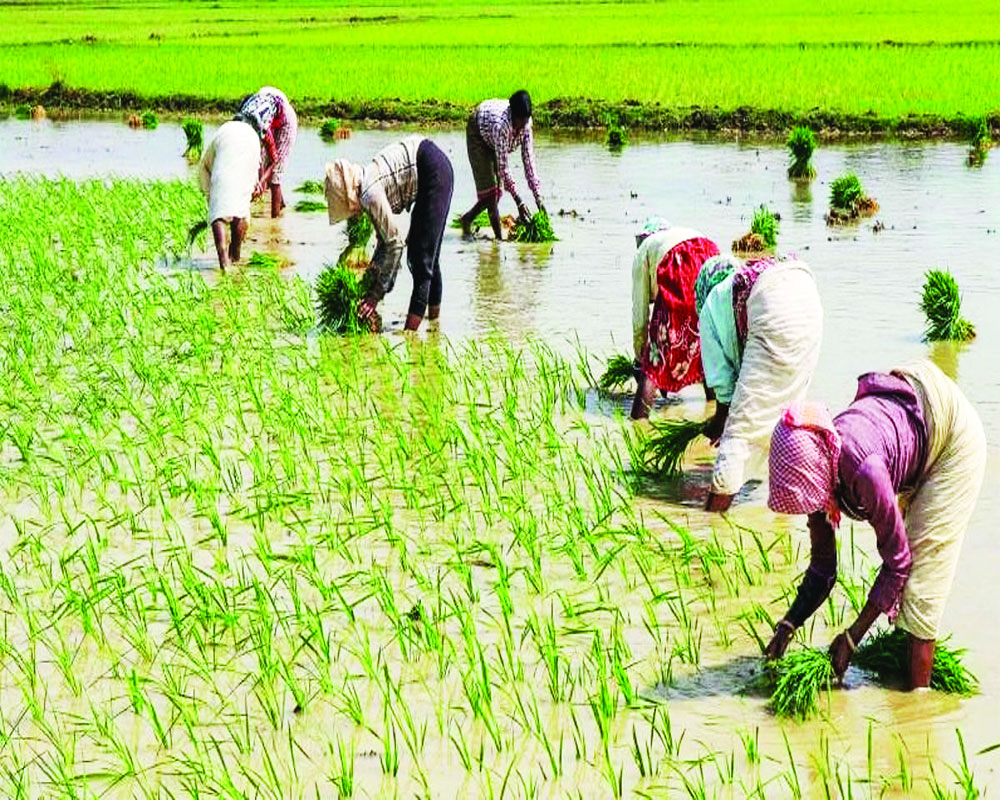India is the world's largest rice exporter; sudden export restrictions on rice could damage India's reputation as a reliable supplier to the world
Farmers who have already been hit hard by crop losses due to floods are facing further challenges due to restrictions on rice exports. The government recently tightened restrictions on basmati exports, setting a minimum price of US$1200 per metric tonne. Any export contracts below this price will be evaluated by a committee established by the Agricultural & Processed Food Products Export Development Authority (APEDA) for clearance. The reason behind these restrictions is to prevent exporters from evading white rice export bans by misclassifying non-basmati varieties as basmati. However, quality-conscious global markets such as the UK are using DNA fingerprinting to verify the authenticity of basmati branding and to detect any adulteration with other rice varieties.
It is important to consider the previous two moves that aimed to discourage rice exports when evaluating the current decision. In July, the government banned the export of non-basmati rice, and on August 25, a 20% export duty was imposed on parboiled rice. These measures will have a significant impact on farmers, particularly those from Punjab and Haryana, who play a significant role in basmati export. They will face a double blow, as they are expected to lose around 10-12% of their crops due to flooding in some areas, and they will also be unable to benefit from the high export price of rice. The export ban means that farmers cannot take advantage of the global demand-supply scenario, which has caused rice prices to surge internationally (Rice Price Index reached 130 in August 2023) since September 2011.
The government is taking steps to control domestic food inflation, particularly due to concerns over a potential harvest shortfall caused by heavy rains and floods in key rice-growing states during the Kharif season. Maintaining stable inflation is crucial for India's macroeconomic stability. However, restricting rice exports may negatively impact farmers, especially those who are already vulnerable. To address this issue, state governments may need to exempt market and rural development fees on basmati exports to help farmers cope with potential losses.
To prevent agricultural produce from being restricted or banned for export, the central government must purchase it at a fair price. This price, known as the export parity price, represents what farmers would have received if they had been able to fulfil their export contracts. The government can then sell this stock in the market to keep prices stable, although this will come with a fiscal cost. However, any short-term expenses can be balanced out by savings in other areas. Additionally, using export parity prices has long-term benefits, since limiting farm income can make farmers less willing to support agricultural reforms that require upfront costs and provide long-term benefits.
India has been the world's largest rice exporter for more than a decade, contributing about 19% of its agricultural exports. However, sudden export restrictions on rice could damage India's reputation as a reliable supplier to the world. Despite this, there is still a strong demand for Indian rice because it is cheaper than international prices. As a result, India saw record exports of 2.22 crore tonnes in 2022-23, which accounted for over 40% of the world's total rice shipments. The non-basmati varieties make up the largest share of India's rice exports, with 1.77 crore tonnes worth Rs 51,089 crores. Additionally, India has exported 45 lakh tonnes of basmati rice earning Rs.38,524 crores during 2022-23, with Punjab contributing 45% of the share.
High Hope fetches record rice acreage in Punjab:
Punjab farmers have achieved a remarkable feat this year, despite facing challenges such as flooding in July and August and a slight reduction in paddy cultivation across 20 of 23 districts. They have surpassed all previous records in the current Kharif season by cultivating a whopping 31.93 lakh hectares of rice, including 5.87 lakh hectares of basmati, which is the highest ever in the history of Punjab. This achievement is particularly significant as the international prices of rice are currently at an all-time high.
However, to maintain ecological balance, the Central Ground Water Board had recommended that Punjab limit its ordinary rice area to 18-20 lakh hectares and bring around 8-10 lakh hectares under basmati aromatic rice. This would allow for diversification from non-basmati to basmati and tap into new global markets such as Benin, China, and Senegal. In the long term, this could be a lucrative opportunity for Punjab.
This year's record-breaking basmati prices in the global market may lead to domestic prices of up to Rs 4500/quintal. This has encouraged farmers to diversify from traditional crops towards the export potential of basmati, which can supplement their income and benefit the environment. To maintain the quality of produce, farmers in basmati-distinct districts should consider selecting export-oriented basmati varieties, using suitable soil for cultivation, ensuring quality irrigation water, implementing demand-driven quality control measures, and using cost-effective and eco-friendly production methods to conserve the agro-ecosystem.
Northern parts of Punjab have favourable agro-climatic conditions and should focus on producing export-quality basmati varieties with higher yields and lower water consumption while maintaining the traditional basmati-rice aroma and minimizing the residue of restricted pesticides. Farmers must be incentivized and intensively trained in various aspects of producing quality basmati.
(The Author is Vice-Chairman Sonalika Group, Vice-Chairman of the Punjab Economic Policy and Planning Board and Chairman of ASSOCHAM Northern Region Development Council; views are personal)


























